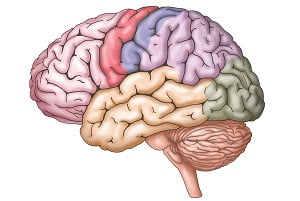Brain Tumor in Children
- Updated on: Jul 24, 2024
- 4 min Read
- Published on Dec 11, 2018


Knowing about Brain tumor in children
Pediatric tumor is a serious condition affecting children and adolescents all over the world. Around 4500 children in the United States are diagnosed with this cancer every year.
Researchers are still trying to figure out the actual cause which leads to the development of brain tumor in a child. According to ‘The American Cancer Society’, there is no clear cause or known reason which leads to the development of brain tumors in children. Researchers are trying to find new tools and improved surgical approaches to help doctors diagnose brain tumors during early stages and also treat them more effectively to keep children safe.
Several theories are postulated that state that formation of brain tumors is associated with genetic conditions, such as neurofibromatosis, von Hippel-Lindau disease, Li-Frameni syndrome, etc. There are also evidences which support that the cause of tumor formation might be genetic mutations, exposure to environmental toxins, or effect of radiation treatments for other cancers.
More: Brain cancer survival rate
More: Real life experiences about coping with cancer
Common types of brain tumors in children
Like in adults, a tumor in children can be benign or malignant. They can also be broadly classified as primary or metastatic. Based on the behavior and patterns of tumors in children, we can classify them into different types. Some of them are listed below:
Gliomas
Gliomas are tumors that develop from the glial cells. They are categorized into astrocytomas which grow from the star-shaped astrocyte cells, oligodendrogliomas, which grow from oligodendrocyte cells, ependymomas which grow from ependymal cells and schwannomas which grow from Schwann cells.
Astrocytomas
They are known to be the most common type of glioma. They account for about half of all childhood brain tumors and most of them develop in children between the ages of 5 and 8. These tumors can be further subdivided depending upon the stage and severity such as pilocytic astrocytoma (Grade 1 tumor), diffuse astrocytoma (Grade 2 tumor), anaplastic astrocytoma (Grade 3 tumor), and Glioblastoma multiforme (Grade 4 tumor).
Gliomas are likely to develop in many different locations in the brain, and therefore can be referred to as “optic nerve glioma” or “brainstem glioma” depending upon the physical location of the tumor or its glial origins.
Other common pediatric tumors
Some other known pediatric tumors that arise from other brain structures are craniopharyngiomas, choroid plexus tumors, dysembryoplastic neuroepithelial tumors, ependymomas, medulloblastomas, optic nerve gliomas, etc.
Brain tumor symptoms in children
The symptoms of tumor formation in children may vary in every child depending upon the age of a child and the type of tumor. There are no specific symptoms that indicate the presence of brain tumor in children, but some common signs might indicate an abnormality in the brain, which can be confirmed by a doctor through differential diagnosis. These are:
- Persistent vomiting or nausea (for more than two week period), especially in children below 5 – 11 years
- Abnormal balance while walking or lack of co-ordination or balance, especially in children below 5 years of age
- Recurring headache (for more than a month and especially while walking)
- Abnormal eye movements
- Fits or seizures without fever
- Behavior changes such as personality and mental activity changes
- Blurred/double vision or hearing loss, in children above 5 years of age
- Abnormal head position (such as a head tilt or stiff neck)
- Delayed or arrested puberty in growth children
- Drowsiness, clumsiness or coma
- Diabetes insipidus (excessive drinking and urination) might also be found in such children
- Rare symptom: Macroencephaly or enlarged head in infants whose skull bones are not completely fused
Brain Tumor Diagnosis in Children
Diagnosis of brain cancer in children is similar to that in adults. A pediatric neurologist might recommend a CT scan of the head, MRI of the brain and also perform an examination of the cerebral spinal fluid (CSF). Most of these tests are painless but children are often scared during the procedure. In very few cases, doctors might recommend biopsy for children.
Treating pediatric brain cancer
In recent years, significant advances in pediatric neurosurgery have been observed. This has made treatment of brain cancers in children possible. Treatment for pediatric brain cancer varies according to the type of tumor, its grade, position and the extent of metastasis.
After detecting brain cancer in children, doctors may prescribe steroids to reduce the swelling that often surrounds brain tumors and anti-convulsants to prevent fits. The most preferred treatment is surgery but it might not be feasible for all children. A child may be recommended for chemotherapy or radiotherapy (radioation therapy). Other possible treatment for brain tumor is proton therapy (a form of radiotherapy) which is gaining much importance these days.
Survival rate of brain tumor in children
The overall five-year survival rate for brain and spinal tumors in children is estimated to be about 70%. According to the American Cancer Society, the five year survival rate of glioblastoma in children is estimated to be very low i.e. about 20%. It is also observed that medulloblastomas have better prognosis than the other embryonal tumors. For infants with localized disease, the survival rate with brain tumor is about 50%.












